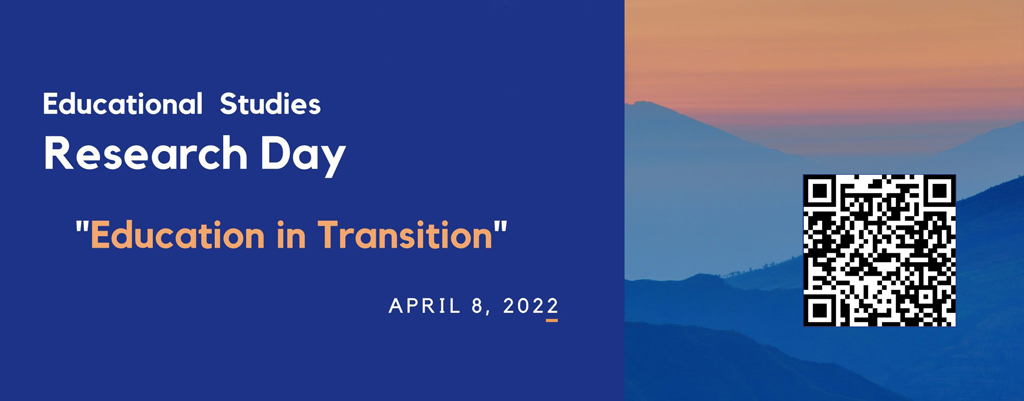
If you have any questions, please reach out to the GAA team at edst.gaa@ubc.ca.
Keynote: Music Education in Transition:
Challenges to Decolonizing and Indigenizing Higher Music Education
Speaker: Laurel Forshaw, PhD
Indigenous musicians and scholars have repeatedly demanded a transformative re-imagining of music education. While Canadian universities have, increasingly, begun to engage in decolonization and Indigenization efforts, engagement in these efforts has been inconsistent and uneven within institutions and across the sector. Higher music education, in particular, has done little in terms of participating in decolonization and Indigenization efforts. The transformative re-imagining of music education called for by Indigenous musicians and scholars needs to occur at all levels and areas of music education; however, higher music education has an immense power and influence on most interactions and experiences that students have throughout their lives with music education. Transformative re-imagining of all facets of higher music education will result in school and community music programs that are taught by music educators who understand, value, and include Indigenous perspectives, musics, and musical practices in culturally safe(r) ways that meaningfully and respectfully engage with reconciliation, decolonization, and Indigenization efforts.
This talk aims to address the challenges to higher music education’s engagement in decolonization and Indigenization efforts and to consider the ways in which these efforts position music education as education in transition. The talk will draw on Laurel’s doctoral research—Engaging Indigenous Voices in the Academy: Indigenizing Music in Canadian Universities (2021)—in which she engaged with six university-trained Indigenous musicians, conceptualizing a transformed higher music education in which Indigenous musics, musicians, knowledges, and musical practices are valued and included in ways that go well beyond Indigenous inclusion (Gaudry & Lorenz, 2018). The magnitude of what will be required of higher music education in the work of decolonization and Indigenization will necessitate visionary and courageous leadership and will necessarily involve all stakeholders in higher music education (including deans and senior leadership, chairs, faculty, staff, students, patrons and donors, and audience members) as the discipline navigates the challenges it faces as an education in transition.
Biography
Laurel Forshaw is a Postdoctoral Research Fellow in EDST where her research in Indigenization seeks to draw attention to the disparity between Indigenous and non-Indigenous participation in higher music education. Laurel holds a PhD in Music Education from the University of Toronto, a Master of Arts in Music Education (Choral Conducting) from the University of St. Thomas, Minnesota, and serves on faculty for the Kodály certification program at Western University. Laurel has taught elementary music education methods and conducting at the University of Toronto and Lakehead University. An active choral conductor, she was most recently conductor of the Strata Vocal Ensemble in Hamilton, ON, and before that, she was Artistic Director of Dulcisono Women’s Choir and founder and Artistic Director of Rafiki Youth Choir, both in Thunder Bay, ON.
Research Day 2022 – Call for Proposal
The program committee for EDST Virtual Research Day 2022 invites proposals for individual presentations, poster sessions, roundtable and panel sessions, and more from students and faculty members. All students are welcome: Ph.D., Ed.D., M.A., and M.Ed.!
EDST Research Day showcases the rich educational research, practice, and theory developed by the department’s students and faculty. We welcome work in diverse subjects, and in all phases of development, including projects that come out of coursework, research conducted as Research Assistants or Principal Investigators, thesis sections, or papers in progress. Presenters can also try out ideas to be developed for a forthcoming conference.
Mindful of conferences that will take place shortly after Research Day, we encourage participants to engage with topics covered by key conferences in our field. We invite proposals that focus on the following themes:
- Decolonizing education
- What should we take from our past? What should we let go of?
- Equity and education
- Intersectionality
- Education during a pandemic – lessons and challenges
While these themes pose captivating questions, applicants should not feel compelled to cater to these themes. Applications that tackle other topics are strongly encouraged.
Each session should include at least one EDST student, but we encourage collaborations with EDST faculty members and/or students from other departments. Faculty members are invited to take an active role throughout Research Day as discussants, moderators, facilitators, and mentors.
See Submitting Presentations tab for application link.
Types of Presentations
Individual Presentations
Traditional and alternative presentations are welcome!
Suggestions include:
Paper Presentation (up to 20–minute talk and 10-minute Q&A)
Short Presentation (up to 7-minute talk and 5-minute Q&A)
Ignite (20 slides in 5 minutes, each slide advancing automatically after 15 seconds and 5-minute Q&A)
Art/Performance
Film Presentation (up to 20 minutes)
Poster Presentations
Roundtable and Panel Sessions
Roundtable and panel sessions will run 75 minutes each. Formats available are:
Panel Discussion: 2-4 panelists discussing a topic in front of the audience; includes a Q&A and discussion section
Roundtable Discussion: A discussion on a topic in a roundtable format with equal participation from all participants
Book Session: A presentation of a new book, followed by a Q&A session
Scholars’ Café: Informal session that showcases the most exciting and unique research done at EDST.
How to Apply
Proposal Requirements
- Individual presentation proposals should include:
- Presenter’s name, department and program.
- Full title of the proposal 150-200 word abstract
- Type of presentation
- Panel/Roundtable discussions proposals should include:
- Facilitator’s name, department, and program
- Full title of the proposal Type of session
- Brief summary of activities planned for your session and key participants’ names, with a 150-200 word abstract for each speaker
Want to present but not sure how to prepare? Your GAAs are here and would love to sit with you to discuss your proposal ideas and helping you prepare! Contact us at: edst.gaa@ubc.ca for any questions, comments or assistance.
Please submit your proposals by completing this form: https://ubc.ca1.qualtrics.com/jfe/form/SV_3xSs9Ud8tyVSkN8